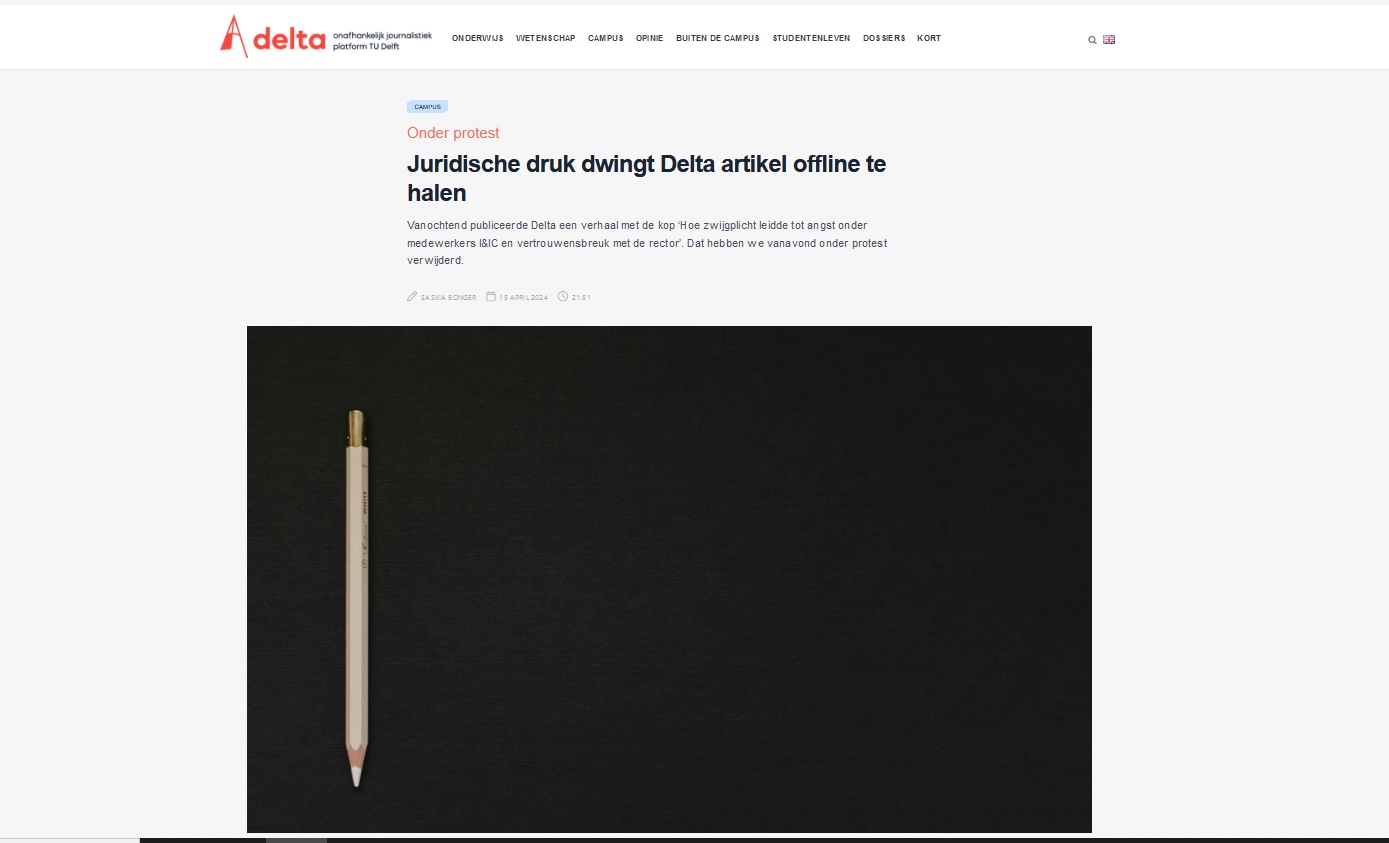The TU Delft demanded Delta’s editors retract a critical article on the working culture within the I&IC department on Monday evening (see original article below). On Tuesday afternoon, the board expressed its regret. Whether the article in question will be posted online again remains unclear.
Board president Tim van der Hagen says in a statement on the TU Delft website that the Delta editors must be able to practice independent journalism in a safe working environment.
“This should not have happened and I apologise on behalf of the Executive Board, especially to our colleagues at Delta. Delta is an independent journalistic medium. That they follow us critically is not always pleasant, but it is good and necessary. And it should stay that way.”
Fold
TU Delft is working on a plan to improve the institute’s social safety following a critical report from the Education Inspectorate. ‘The Executive Board is aware that yesterday’s events will not help this process. That is why we are apologising now’, Van der Hagen writes. It is not the first time the TU Delft folds. The board initially threatened to sue the Education Inspectorate, but withdrew this plan amidst profuse apologies, following protests.
University magazine Delta’s editors are forced to take an article offline. The article detailed how a non-disclosure agreement for employees on a dysfunctional director led to a breach of trust with the TU Delft board.
Delta published an article yesterday morning titled ‘How confidentiality led to anxiety among I&IC staff and a loss of confidence in the Rector’. The article disclosed details on the director’s transgressive behaviour and the way the Executive Board of TU Delft addressed the problem. The Board forbade the complaining employees from disclosing any information and asked them to ‘look to the future’.
Slander
The editors removed the article yesterday evening. A lawyer representing the director threatened to press charges against the editors for libel or slander, Delta writes in a statement. Moreover, the TU Delft’s legal department threatened to hold Delta’s editor-in-chief ‘personally responsible for any damage incurred by the TU’.
Delta says this approach aptly illustrates how the university addresses social safety. The Education Inspectorate accused the TU of negligence in its duty of care for its employees at the beginning of March. The inspectorate stated that the board failed to take sufficient measures to improve safety at the university and concluded that there was a situation of ‘mismanagement’, enabling the minister of Education to intervene.
Firm talks
The same minister reported on Monday afternoon in the House of Representatives that he had conducted ‘firm and constructive’ talks with the TU Delft’s Supervisory Board. The minister stated that ‘the executive board must also show a change in leadership, culture and management, which calls for the necessary self-reflection’.
The TU must submit an action plan to the inspectorate by mid-May, which will ‘imitably, objectively and demonstrably’ improve social safety. The minister will report to the House on its progress before the summer.
Under protest
The Delta editors still stand by ‘every word’ in the removed article. The article was taken offline ‘under protest’. ‘ Not because we fold before legal intimidation, but because we feel that the TU has better ways to spend its time and money than in court cases against its own employees.’
The TU also threatened to take the Education Inspectorate to court but withdrew this plan following protests.
HOP, Olmo Linthorst

 Screenshot of the Delta website. Used photo: Kelly Sikkema/Unsplash
Screenshot of the Delta website. Used photo: Kelly Sikkema/Unsplash